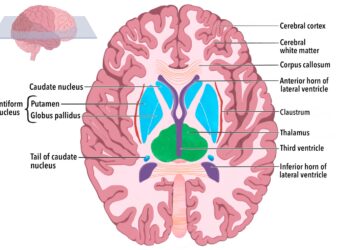To vaccinate or not? And why there is reason to be optimistic about 2021
31st December 2020
To call the past year as challenging has to be one of the greatest understatements of all time. When you sit back and reflect on the year, the standout event has to be COVID. The emergence of a novel virus in Wuhan, China at the end of 2019 has had a devastating impact on many lives, businesses, mental health and more. Lockdown was surreal, and the government sluggish and chaotic in its response but the challenge at the beginning of the first wave in the UK was for all the clever scientists to get working on a vaccine that could protect us from this virus and they did it under 10 months. By any measure that was a truly amazing achievement and one that we should be very proud of. The NHS and all of its amazing staff also showed why we need to support it as an iconic institution which much of the world looks on at with envy.
The collaboration between the private & public sectors showed just what can be achieved (I appreciate that these pharmaceutical companies will make a lot of money but without their infrastructure and ability to mass produce the vaccine we would have been in a very different place).
So the question is should you have the vaccine? Before I answer this question I am aware of the powerful anti-vaccination groups that are spreading misinformation and I fully expect them to respond to this post negatively. Can I just say, in order to save everybody time and energy, that if you don’t want to have the vaccine, fine, that’s your choice (and currently we live in a democracy where you do have choice). So do what you feel comfortable doing. For everyone else, I think that the vaccine is safe and effective and as I’ve said all year, if you are offered it, you should grab it with both hands. I totally understand that there are sub-populations where giving an immune stimulation (such as a vaccine) may cause more harm than good (e.g. with PANDAS patients) but these are a very tiny minority of the whole population. It is so important to understand that the mRNA vaccine is not a live vaccine. The technology simply tricks the immune system into producing antibodies against COVID. These antibodies then neutralise and destroy the virus. Therefore, although it might not be in the child’s interest to receive a vaccine (children do not in general get any significant disease with COVID anyway) it is certainly in a PANDAS child’s interest for their parents to be immunised.
The technology behind the mRNA vaccine is amazing in its simplicity and will open the door to treatments apart from viral infections. As far as COVID is concerned, if the virus does mutate we now know that we can respond very quickly with a new vaccine (within a few weeks) because of the system used to develop the mRNA vaccine. This is going to very important going forward because currently we are dealing with a virus with a relatively low mortality rate (around the 1% mark). Imagine if the mortality rate was higher, say 10% or more. Now that would be a problem.
I remember discussing the number of deaths in the UK with someone in my local pub around February. At that time I estimated that without intervention, 400,000 people could die in the UK within a year. With intervention I placed a wager that within 2 years we were likely to see around 100,000 deaths, we are already at 80,000 and when you look at excess deaths we are running even higher. Of course I wish I was wrong but the point is that by introducing measures such as lockdown and closing certain environments where transmission is high we have significantly reduced the death rate and now we have the vaccine but also a new highly transmissible variant. The next 3 months are going to be critical. We will gradually move into a situation where we have two populations of people, those who are vaccinated and those who are not. During this transition it is important that everyone plays their part in limiting the spread of the virus. I suspect that we are going to have a very sharp increase in the number of cases of COVID over the next 4 weeks (the Christmas bounce) but that the numbers will then come down quickly as we try and limit the spread of the virus with the tier system and the introduction of the vaccine. The most vulnerable will be vaccinated first and so the number of deaths should start to come down at the beginning of February, assuming we can get 2 million people vaccinated per week. By the time we get to March we should be in a much, much better place and hopefully we can look forward to a much more normal summer. Whether the NHS copes with the huge wave that we are anticipating over the next 4 weeks remains to be seen. I feel that these are unprecedented times and we will be operating beyond our capacity and that means that people will die. What you can be assured of is that your NHS staff will do their very best in what will be extremely challenging circumstances.
This has been a terrible year, but there have been rays of light including finally getting the Brexit deal done, Captain Tom, the Biden win in the US election, the black lives matter movement after the horrific death of George Floyd, the COVID vaccine, Marcus Rashford managing to get the government to do two U-turns, our amazing NHS and Bukayo Saka playing for the Arsenal!
What is for sure is that we are going to need all the leaders in our society to stand up and help us all get back onto a new road of normality. The next three months will be critical but if we all play our part the spring should herald happier times.
Happy new year everyone!
Posted in: Health Politics by Dr Tim Ubhi




Comments